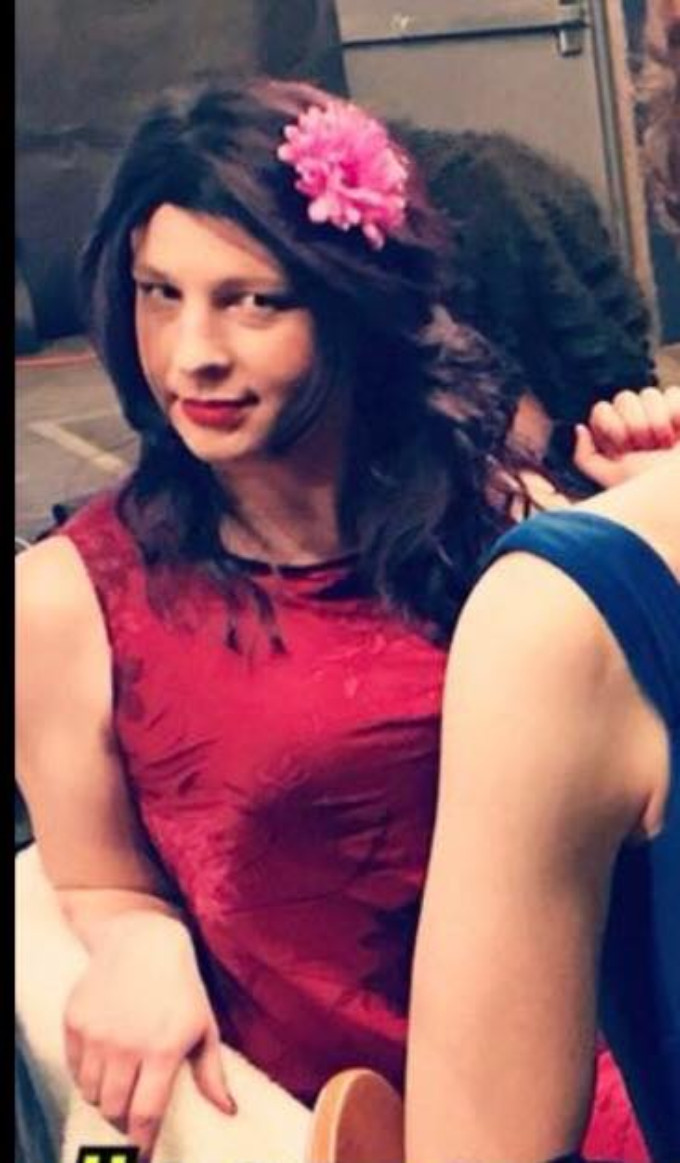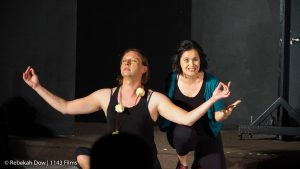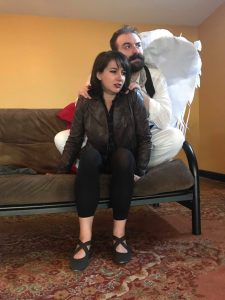Feature: ARTISTS ARE NO STRANGERS TO TRANSITION at Derby City Playwrights

Vidalia Unwin has been a playwright and an actor for several years in Louisville and the surrounding area. The Alley Theater, The Bard's Town, and Finnigan Productions have produced her plays. Most recently, Broken Iris made its debut as part of the inaugural Louisville Fringe Festival. It happens also to be the first play produced since the playwright, a transgender individual, has been in transition.
The transition may have seemed sudden to some, but, according to Unwin, it was the expected evolution of a struggle with gender identity that had existed for several years. "I don't believe it came as a real surprise to people who have been close to me for at least the last 12 or 13 years." Comfortable in expressing some degree of gender fluidity for a time now, Unwin now laughingly calls herself a "gender expatriate". "But I think a lot of people wouldn't like that phrase."
When asked how long it might be before she considers the transition "complete", Unwin quickly answers - "Never." Although the practical reference is to a lifetime of hormone protocols, I detect a sense of inevitability about the fluidity of identity and a resignation of the ongoing fight for acceptance.
It is difficult not to try and connect the dots on that observation and the question of what are the defining characteristics of Unwin as a writer. She talks about "presenting"; a term that denotes a heightened self-awareness of superficial gender identity that also is strikingly theatrical in its connotation. While it seems fair to assume it is something shared by all transgender individuals, it feels as if there is another level of meaning for transgender theatre artists, and perhaps actors in particular. Unwin prefers the term "actor" to "actress" in discussing that part of her work, although she doesn't appear to get overly stressed about the nomenclature.
Her patience might come, in part, from the gratitude for being so accepted by the theatrical community in which she functions. "I have been so lucky in that I have been freakishly accepted by everyone in my creative community," she says, "even by people who don't know me as well."
Yet comfort cannot be taken for granted. " I dip my toe carefully into the water when I go someplace I haven't been while presenting. But I also feel that we are always presenting to varying degrees." Unwin smiles wryly. "To quote RuPaul: 'We're all born naked, the rest is drag.'"

Unwin with J.Ariadne Calvano in The Devil Eats Oreos by Sharai Bohannon. © Rebekah Dow/1143 Films
So if transitioning poses no special challenge to Unwin as a writer, it must for her as an actor. In 2018 she made the decision to only audition for female characters. When she last played a male character in a winter 2017 production for The Chamber Theater, it proved a very difficult experience. "I was super depressed to be presenting as a male in life and having to also do it onstage - it was very hard for me."
Yet Unwin considers herself first and foremost a writer who is sometimes an actor. "The desire to express an idea or series of ideas is more important than anything I could do onstage."
But transitioning is not necessarily one of those ideas, at least not right now. "I am loath to have my writing seen as autobiographical, I separate myself a lot from my it. I feel that a common problem in cathartic writing is that the therapy overcomes the quality."
Unwin breaks her writing into three categories, or "universes". Broken Iris occupies the Unwinverse, along with @Con (2016), an environment for the more respectable stories that remain edgy and offbeat but exist in a world we might recognize.
The "strange and confounding" The Ballad of Night Moose (2014), co-written by Lex Mitchell, well represents the "Mooseverse", in which absurdity injects itself into genre parodies.
Finally, there is the "Pretentious, Existentialist Banana", or "PEBverse". Unwin explains that the work from this most personal silo is the closest she ever comes to cathartic writing, but since none of the PEBverse has ever been produced, there is no way to judge the veracity of the observation. One can only speculate as to how strange and confounding this writing might be.

Leslie Renee & Josh Rocchi in Vidalia Unwin's Broken Iris. Courtesy Vidalia Unwin
Talking with Unwin about all of this on a late summer afternoon over chicken and waffles, she reveals a depth of traditional intellectual underpinning for her writing that seems unexpected. In my mind, and perhaps that of the audience who has followed her, the eccentricity of her earlier work belies such an academic foundation. There was often an embrace of outrageousness and characters that lived away from the mainstream that could easily have been taken as subversive or facetious; a thumbing of the nose to established theatrical and storytelling convention. It could be seen to suggest the artistic point-of-view of a rebel, an anarchist flinging abuse from a position well enough outside the mainstream that the traditional foundation might seem surprising.
Yet, Unwin's preoccupation with subcultures is arguably as much in touch with contemporary society today as anything else. The current American identity seems to rely on the appropriation of "The Other" and fragmentation into groups and networks of like-minded obsessives. In the way of any writing of true worth, Unwin is casting a critical eye on the world around her and asking her audience to explore a different world than the one they find themselves in. And like so many other artists, her perspective may well be a step or two ahead of the rest of us.
A crucial part of her growth as an artist and one example of one of the more positive of those aforementioned groups of obsessives is the Derby City Playwrights, a collective of Louisville-based playwrights dedicated to the development of locally grown plays. Unwin's @Con was produced in 2016 as a part of the group's First Annual DCP New Play Festival, and Punk Snot, a play derived from a novel she wrote when she was 16, will be included in the next Festival, scheduled for the summer of 2019. Between now and then, all of the six selected scripts will go through a collaborative review and workshop process to prepare them for production.
Derby City Playwrights Season 4:
David Clark - gods Play
Fi Connors - No Cake
Liz Fentress - Neutral Position
Eli Keel - My Mom and the Moon Monsters
Vidalia Unwin - Punk Snot
Brian Walker - On the Road with Bernice and Robin
Comments
Videos

